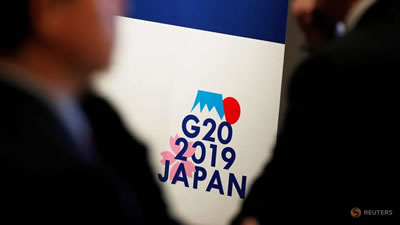Written by Richard Kozul-Wright (UNCTAD) and Kevin P. Gallagher (Boston University)
In his “I Have a Dream” and “Beyond Vietnam” speeches, the Rev. Dr. Martin Luther King spoke of a “fierce urgency of the now” for “vigorous and positive action” on civil rights, peace, and social justice. Today, such action is just as urgent to tackle polarizing inequality, financial instability, and a breakdown of the climate system.
The 2030 Agenda for Sustainable Development and the Paris Agreement on climate change can serve as a 21st century mission for vigorous and positive action. Ambitious efforts are underway at the local and national levels, but without concerted global action the big investment push and structural transformation that are necessary to achieve these shared goals will fail to materialize.

The Parliament of the United Kingdom recently declared a climate emergency and the idea of a green new deal has captured the political imagination across continents. More locally, communities in Niger have adopted a Farmer Managed Natural Regeneration program—a low-cost land restoration scheme that increases climate-resilient food and timber production to reduce poverty and hunger among poor subsistence farmers. The city of Helsinki has enacted a participatory development program aimed at increasing openness and participation in urban infrastructure and planning.
But efforts like these are sailing against the wind unless the multilateral finance, trade, and investment regimes are aligned with the Sustainable Development Goals (SDGs) and Paris goals.
A decade ago at the G-20 in London, vigorous and positive action helped stem the global financial panic triggered by the collapse of the subprime mortgage market in the United States. But the accompanying talk of a fresh start for the wider multilateral system—“a new international order” for President Sarkozy, “a new Bretton Woods” for Prime Minister Brown—was quickly shelved in favor of what Martin Wolf has dubbed “a desire to go back to a better past.” The dangers of retreating to a world marked by extreme inequality and financial fragility are apparent everywhere.
G-20 leaders please stand up
Leaders convening in Japan will, no doubt, face an uphill struggle to find a forward-looking consensus. A strong coalition will be needed to compensate for the U.S. and others that appear hostile to building a multilateral compact for financial stability, social inclusion, and carbon neutrality.
But some G-20 countries have shown they can lead. As the U.S. has signaled its intent to withdraw from the Paris Agreement, others such as China, Germany, and the U.K. are leading by phasing out fossil fuels, investing in clean technologies and advancing green industrial policies; but actions at home must be globalized. These countries need to champion bold global public solutions for a shared global agenda.
As indicated in a recent report by the World Resources Institute, multilateral development banks (MDBs) and other development finance institutions across the world have begun to move in the right direction. WRI shows that most MDBs have pledged to align with the Paris agreement and shift a percentage of their balance sheet toward green growth, and to shun economic activity that needs to be phased out. The European Investment Bank has pledged to shift 35 percent of its lending toward sustainable activity, the BRIC-led New Development Bank has pledged 66 percent, and the Asian Development Bank 75 percent. Almost all of the MDBs have effectively stopped financing upstream oil and gas, and coal-fired power plants. Last year the MDBs provided upwards of $35 billion in climate finance.
Even larger are the networks of subregional and national development banks such as the China Development Bank, Development Bank of South Africa, the KfW of Germany, the Brazilian National Development Bank, and the AfD of France. Institutions like these have formed the International Development Finance Club (IDFC) and have also officially committed to align their financing with the Paris Agreement. Last year IDFC members provided $200 billion in climate finance.
For sure, these efforts are encouraging but $235 billion is just 3 percent of the more than $7 trillion needed annually in sustainable infrastructure financing compatible with the SDGs and Paris alone. Development finance institutions have been trying valiantly to leverage their balance sheets to bring the private sector in, but the results speak for themselves—catalyzing at most $60 billion per year with hardly any flowing to the least developed countries. Moreover, there is concern that these banks are taking on the big risks so that private firms can come in and cherry-pick the most lucrative projects.
Read the original article on BROOKINGS
Follow them: @BrookingsInst on Twitter | The Brookings Institution on Facebook
Richard Kozul-Wright is director of the Division on Globalization and Development Strategies at the United Nations Conference on Trade and Development.
Kevin P. Gallagher is professor and director of the Global Development Policy Center at Boston University in the US.
They are authors of the new report, A New Multilateralism for Shared Prosperity: Geneva Principles for a Green New Deal.


